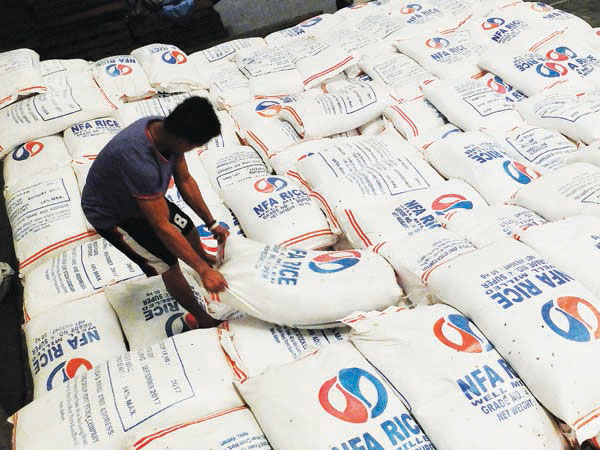 The House Committee on Agriculture and Food and the House Committee on Ways and Means approved on Tuesday a proposal that seeks to reinstate the price stabilization and supply regulation functions of the National Food Authority (NFA) and increase the Rice Competitiveness Enhancement Fund (RCEF).
The House Committee on Agriculture and Food and the House Committee on Ways and Means approved on Tuesday a proposal that seeks to reinstate the price stabilization and supply regulation functions of the National Food Authority (NFA) and increase the Rice Competitiveness Enhancement Fund (RCEF).
The move came a day after President Ferdinand Marcos Jr. declared the proposed amendments to the Rice Tariffication Law (RTL) as urgent.
House Committee on Agriculture and Food Chairman Mark Enverga said the approved substitute bill amending Republic Act (RA) 11203 reflects “extensive committee deliberations,” focusing on crucial aspects of rice buffer stock maintenance and addressing supply deficits.
Key provisions of the substitute bill include empowering the NFA to purchase local milled rice as needed to fulfill its mandate of maintaining the rice buffer stock, said Enverga.
He said this move underscores the government’s commitment to supporting local rice producers and ensuring sufficient rice supply within the country.
Moreover, Enverga said that in cases where local supply falls short of meeting the minimum buffer stock requirements, the NFA will have the option to purchase a certain percentage of rice brought in by accredited importers.
He said this provision aims to supplement domestic supply with imported rice, thereby stabilizing the rice market and mitigating potential shortages.
As a final resort, the NFA will be granted the authority to directly import rice, subject to explicit authorization from the President of the Republic. This authority will be invoked only under “exceptional circumstances” where domestic supply deficits necessitate immediate action to stabilize the national rice supply and maintain optimal buffer stocks.
Additionally, the bill grants temporary powers to the NFA to address extraordinary increases in the price or acute shortages in rice supply.
This provision, Enverga said, empowers the NFA to take swift and decisive measures to safeguard the interests of consumers and ensure food security in times of crisis.
Bigger RCEF
Meanwhile, the bill will also increase the RCEF to P15 billion from the current allocation of P10 billion.
The proposed fund allocation will now designate 53.5 percent for farm mechanization components, 28 percent for seed components, 5 percent for training, 6 percent for rice credit assistance, 4 percent for soil, 2 percent for pest management, and 1.5 percent for the Project Management Office (PMO).
Nueva Ecija Rep. Mikaela Angela Suansing, one of the bill’s authors, said the government expects to collect some P29 billion in tariffs from rice imports annually.
Tariff revenues in excess of P15 billion should be allocated to certain agriculture programs, lawmakers said.
For his part, House Committee on Ways and Means Chairman Joey Sarte Salceda said his committee also approved the tariffication provision of the bill with amendments.
One of Salceda’s approved amendments states that “the Department of Finance, the Bureau of Customs, and the Department of Budget and Management shall submit to COCAFM [Congressional Oversight Committee on Agricultural and Fisheries Modernization] an annual report on the tariffs collected from rice imports and the amount appropriated to the rice fund not later than 30 days from the end of the fiscal year covered by the report.
The Bureau of the Treasury shall certify the availability of funds from tariff collections from rice imports not later than 30 days from the end of each fiscal year.”
Salceda also wants to grant NFA powers to regulate investment in the rice and corn industries.
The bill will now be transmitted to the House Committee on Appropriations for deliberations on its revenue provision.
Speaker Ferdinand Martin Romualdez announced that the lower chamber will give top priority to the approval of amendments to the RTL before the legislative break on May 24.














© Copyright 2023 The SSResource Media.
All rights reserved.